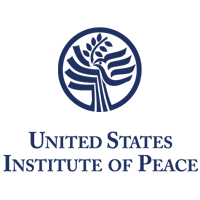Resource information
This report analyses the particular challenges of stabilisation and reconstruction missions in countries rich in hydrocarbons and minerals and provides lessons learned from the recent experience of such countries as Iraq, Sudan, Angola, Liberia, and Afghanistan. It offers recommendations for the U.S. government and others involved in natural resource-rich countries emerging from conflict and also to the extractive industry companies and banking sectors that play a critical role in these states.Findings of the report include:unless deliberate efforts are made to avoid the resource curses, corruption, economic instability, conflict over the distribution of resource wealth and control of resource-rich areas will undermine peace building in war-torn countries rich in hydrocarbons and mineralselite groups who receive royalties and taxes paid by extractive industry companies have shown themselves consistently resistant to democratisationthe international community can play an important role in helping resource-rich states emerging from conflict manage the wealth that accrues from these resources, and can make proper wealth management a condition for donor assistanceit is essential that international missions and indigenous transitional governments immediately secure effective control of natural resource wealth (physical and monetary) and establish the laws, institutions, and capacity to manage that wealth transparently, accountably, and in ways that support reconstructionto be successful, the extractive industries and their bankers, the international financial institutions, and non-governmental organisations (NGOs) must be brought into this process.Recommendations of the report include:the U.S. government and other outside governments should encourage key resource–rich countries to join and implement systems such as the EITI and the Kimberley Process. Countries where this step is relevant include Sudan, Angola, Democratic Republic of the Congo, and Iraqoutside governments should also invest in training and capacity building on natural resource wealth management issues both for diplomats and for governments/officials, media, and civil society in the resource-rich countriesoutside governments should explore the possibilities of discouraging governments and commercial banks from financing governments that do not meet agreed standards for natural resource wealth management. For example, establish legal requirements for disclosure of all commercial bank loans to foreign governments by institutions registered in IMF member countries.



